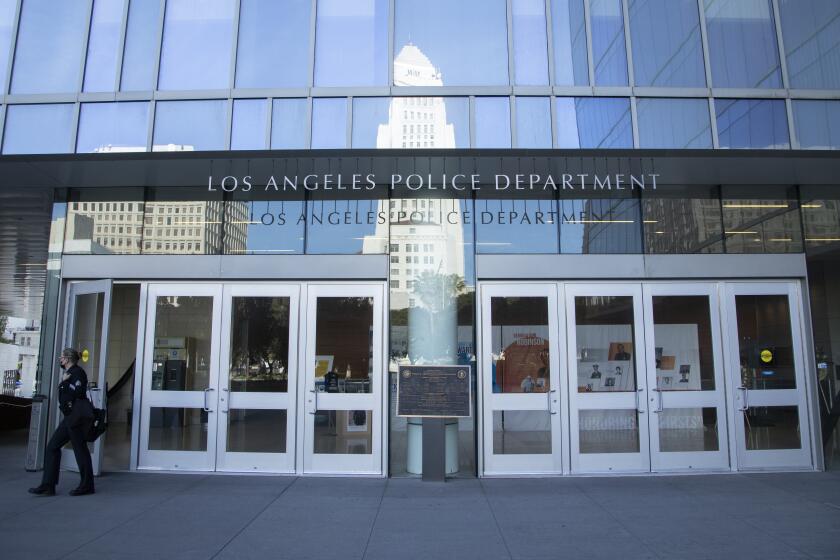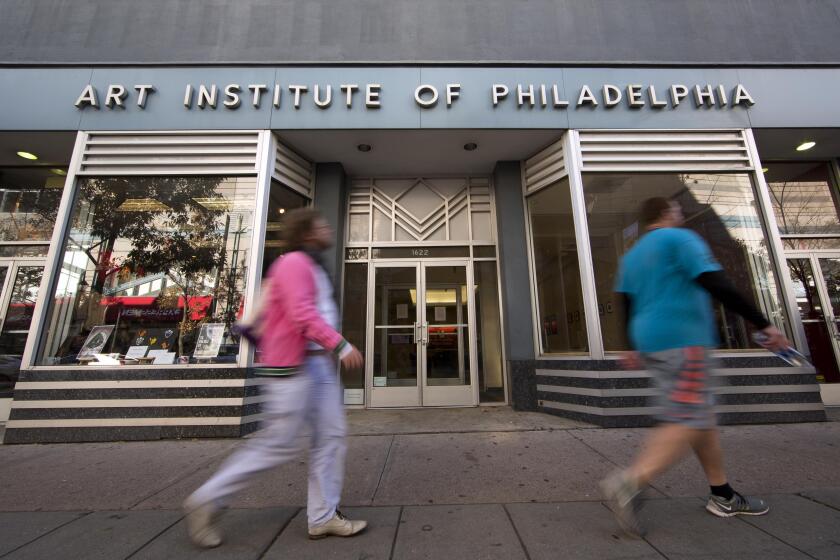Senate Defeats Bill to Allow Country Clubs to Discriminate
The state Senate on Wednesday rejected a bill that would have allowed private country clubs that do limited business with the public to prohibit women as full members.
The bill proposed exempting from state antidiscrimination laws such nonprofit organizations as golf and tennis clubs that regularly engage in limited business transactions with nonmembers.
The bill, carried by Sen. Ken Maddy (R-Fresno), would have overturned a recent state Supreme Court ruling that held that nonprofit country clubs were subject to the same civil rights laws long applied to businesses if they regularly received outside income from nonmembers.
The case, which jolted private clubs throughout California, involved a woman who received the family’s membership in San Mateo’s Peninsula Golf and Country Club as part of a divorce settlement with her husband. The club denied her a full membership.
Now, private country clubs and social organizations can legally discriminate in the selection of their members. But the court said they are subject to antidiscrimination laws if they regularly charge nonmembers for events such as golf or tennis tournaments, private parties and special luncheons, as did the Peninsula Country Club.
The bill (SB 2110) would have allowed the organizations to select their members without interference as long as no more than 15% of their income came from nonmembers. Maddy said this is the standard the Internal Revenue Service applies to nonprofit country clubs that qualify for federal tax exemptions.
But Senate President Pro Tem Bill Lockyer (D-Hayward) pleaded with colleagues not to take a “step backward” in what he said was a California tradition of supporting equal rights for women, minorities, the disabled and others.
“You can’t have it both ways,” Lockyer said. “Either be a private group that is allowed to discriminate or be a business that has to play by the same rules” as other businesses.
Maddy said he doubted that his bill would roll back civil rights in California. He said it would apply a “practical solution” to a conflict faced by “hundreds of thousands of people out there who have associations, such as the Moose, the Masons, all the way down the line.”
The bill required at least 21 votes for approval in the 40-member Senate, but failed on a 17-17 tie. Maddy indicated that he would not seek a second vote today. Voting for the bill were 13 Republicans, Democrats Jack O’Connell of Santa Barbara, Charles M. Calderon of Whittier and Henry J. Mello of Watsonville, and independent Quentin L. Kopp of San Francisco. All the no votes were cast by Democrats and independent Sen. Lucy Killea of San Diego.
In other legislative action:
* The Assembly approved on a 41-30 vote a bill (AB 2509) by Assemblyman George House (R-Hughson) that would exempt employers from paying overtime to employees whose duties are managerial and who make at least $25,000 a year.
* The Senate sent to the Assembly on a 27-8 vote a bill (SB 1501) by Kopp authorizing payment of tolls by truckers at several ports of entry along the border with Mexico. The revenues would pay for roadway improvements. Analysts say roads are inadequate to handle hundreds of thousands of additional trucks that will use them as a result of the North American Free Trade Agreement.
* The Assembly approved by a vote of 56-6 a bill (AB 2738) by Assemblyman Kevin Murray (D-Los Angeles) that would require private schools to notify parents when they hire teachers who have records as sex offenders. One critic, Assemblyman David Knowles (R-Placerville), charged that unlike public schools, private schools should not be regulated by the Legislature. Public schools are prohibited from hiring such individuals.
* The Assembly voted 54-0 for a bill (AB 2456) by Assemblywoman Martha M. Escutia (D-Huntington Park) that would direct the state Trade and Commerce Agency to help plan incentives for businesses to locate in the proposed Alameda Corridor economic development zone in Los Angeles County.
More to Read
Start your day right
Sign up for Essential California for news, features and recommendations from the L.A. Times and beyond in your inbox six days a week.
You may occasionally receive promotional content from the Los Angeles Times.






